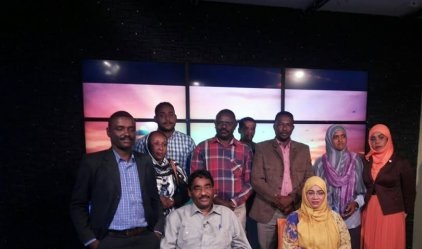Sudanese security interrogate producers of talk show programme
January 23, 2015 (KHARTOUM) – Sudan’s National Intelligence and Security Services (NISS) interrogated producers of talk show programme Al-Sala at Omdurman TV on Thursday for hosting a famous opposition figure.

He also lambasted NISS’s repeated summons and prosecution of journalists as well as criticizing regime’s policies.
The move come 24 hours after the opposition Sudanese Congress Party (SCP) said that NISS banned Omdurman TV from broadcasting an interview it conducted with its leader, Ibrahim al-Shiekh, two days earlier.
On Thursday NISS also confiscated copies of the Sudanese Communist Party (SCP) mouthpiece al-Midan without giving reasons.
Last week, the chief editor of al-Midan, Madiha Abdalla, was interrogated by the prosecutor on charges of crimes against the state filed by the NISS.
JHR expressed concern over the growing NISS’s attack against freedom of expression and publishing rights, calling for escalation of resistance against the current conditions.
Sudan’s constitution guarantees freedom of expression but laws subordinate to the constitution such as the National Security Forces Act of 2010 contains articles that can be potentially used to curtail press freedom and instigate legal proceedings against newspapers and individual journalists.
Journalists work under tight daily censorship controls exercised by the NISS.
Journalists say that confiscation and suspension of newspapers is a commonly used practice by the local authorities to overburden the newspapers with financial losses alongside other non-financial pressures.
NISS recently intensified its crackdown on press in the country, accusing them of crossing a red line by publishing reports which adversely impact the country’s national security.
(ST)
